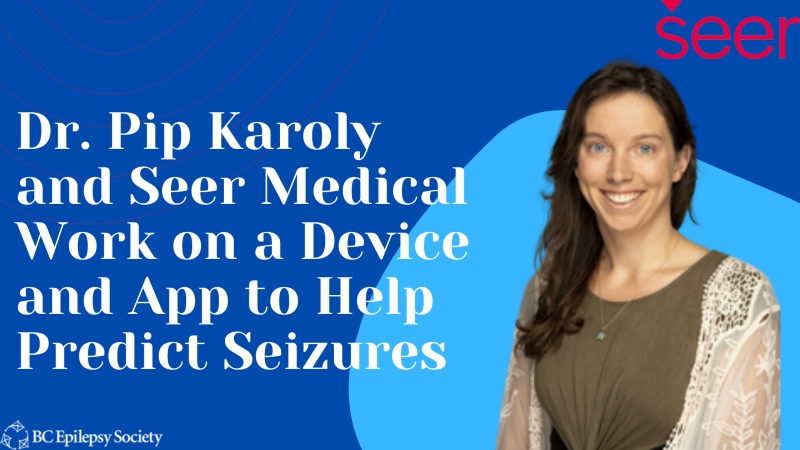Dr. Pip Karoly and Seer Medical Work on a Device and App to Help Predict Seizures

Dr. Pip Karoly is a neuroengineering researcher and a senior research fellow at the University of Melbourne who recently spoke with the media about her work with Seer Medical – an Australian-based technology start-up specializing in data analysis for epilepsy – where she is one of the team members.
At Seer Medical, early research was done with a device that was implanted on the surface of the brain just underneath the skull. More recent research is currently being done on a device – the Epi-Minder – that sits between the bone and the skin and records brain activity and is still in clinical trial stage. You can read more about the Epi-Minder in a blog from the BC Epilepsy Society here.
Recently, Dr. Karoly and Seer Medical have completed research on a wearable device and app that can predict seizures. They have been looking into determining patterns of seizure activity by using a wearable device – they are using a Fitbit, a consumer-grade smartwatch – that is combined with the Seer smartphone app.
Dr. Karoly’s work involves combining data from multiple sources (including various body measurements like heart rate, oxygen saturation, skin temperature, sleep quality, exercise levels, etc.) to help people understand their seizures and to determine when their next seizure may potentially happen.
A person with epilepsy would put on their Fitbit and then look at the app on their smartphone and get data and insight on any risk factors associated with their seizures and epilepsy. According to Dr. Karoly “[they] would look at [their] risk factors in the morning the way people look at the weather forecast for the week ahead”.
There are some limitations associated with this discovery, as the Epi-Minder, being an implant device, would be able to capture someone’s seizure history more accurately than a non-invasive wearable device. However, the Epi-Minder is still in clinical trial stages and, even after being completed, may not be available for everyone, especially within the developing world. On the other hand, through a smartwatch and app, this allows them to roll out the technology in a more widespread way to help people with epilepsy in various parts of the world.
For more information, please read Dr. Karoly’s article in Cosmos Magazine here.





